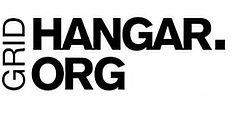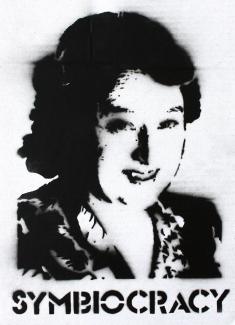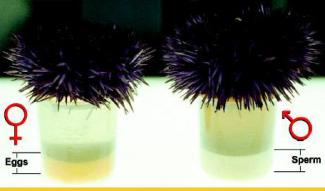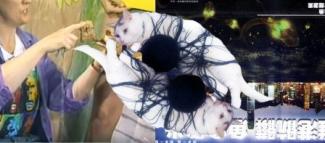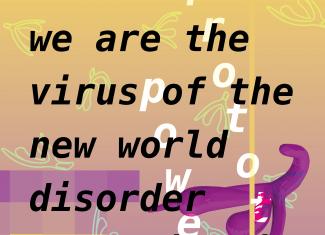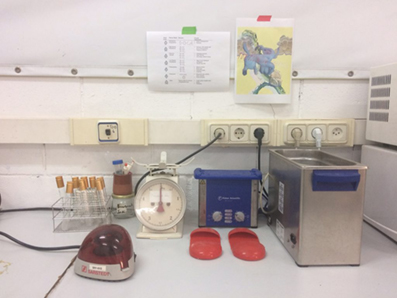
2015-2021
The research line on bioart is closely linked to Hangar’s wetlab. The wetlab is a space where hybrid interactions that disrupt the limits generally established between art and science take place under a transhackfeminist perspective and through a critical revision of science as an institution. Workshops, presentations, research residences, collective work processes and discussions are carried out at the lab. In the context of the current ecological debacle we want to promote projects that are propositive and offer other perspectives for rethinking other possible futures.
The origin of this laboratory is the project EXOglands radical dynamics project: fluids, tissues & bloody self-aware enhancement bionicLAB by Klau Kinki and Paula Pin, developed in Hangar during the Spring Sessions in 2015. Its impact on Hangar community, and the relationship that it started with the Biomedical Research Park of Barcelona (PRBB), led to a laboratory of self-managed biology that continued in operation through Prototyp_ome, a two-year interdisciplinary collaboratory funded by the Carasso Foundation. Since then, Hangar’s wetlab has become one of the permanent laboratories of the center with a stable activity programme.
Projects by Program
Every Tuesday from the 15th of October until the 17th of December at 7pm in Hangar, Laura Benítez moderates a series of open sessions where sharing questions, debates and proposals to elaborate an open protocol for the use of the wetlab.
There is, a Philosophy of “life” in Spinoza; it consist
precisely in denouncing all that separates us from life, all these
transcendent values that are turned against life, these values that
are tied to the conditions and illusions of consciousness.
Every Thursday in May and June at 7 pm, as part of Open Thursdays, Hangar hosts the Spinoza seminar… Open seminar on the philosophical news of Spinoza. The seminar is in charge of Laura Benítez.
Along Maja Smrekar's workshop on reproduction and inter_specie companion we witnessed the reproductive process of sea urchins and we were introduced to the distinction between fertilization, in vitro fertilization and cloning.
All mammals produce gametes. Since sea urchin’s eggs and sperm are similar to our own and their embryos are easy to observe, these animals have been studied since the 19th century as model organisms in developmental biology.
Envirocomputing and its production of new ecological arrangements stretches far out beyond the lab –exploiting intensively the lively labours and frictions of nonhuman animals and organisms through ever-accelerating affective, semiotic and material practices. Our co-compositions/becoming-with both the internet and other digital informational networks and/or devices are ever more entangled strongly in our situated non-local “we”s.
“Stabbing Clitoris” is a collective design project about feminist self-defense weapons developed under the format of a workshop. It took place at Hangar on September 2018. It is a 3D modeling and printing course aimed at non-dominant masculine identities and audiences.
